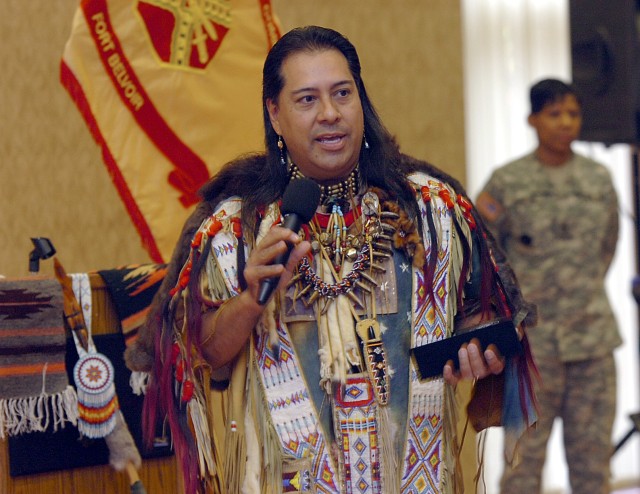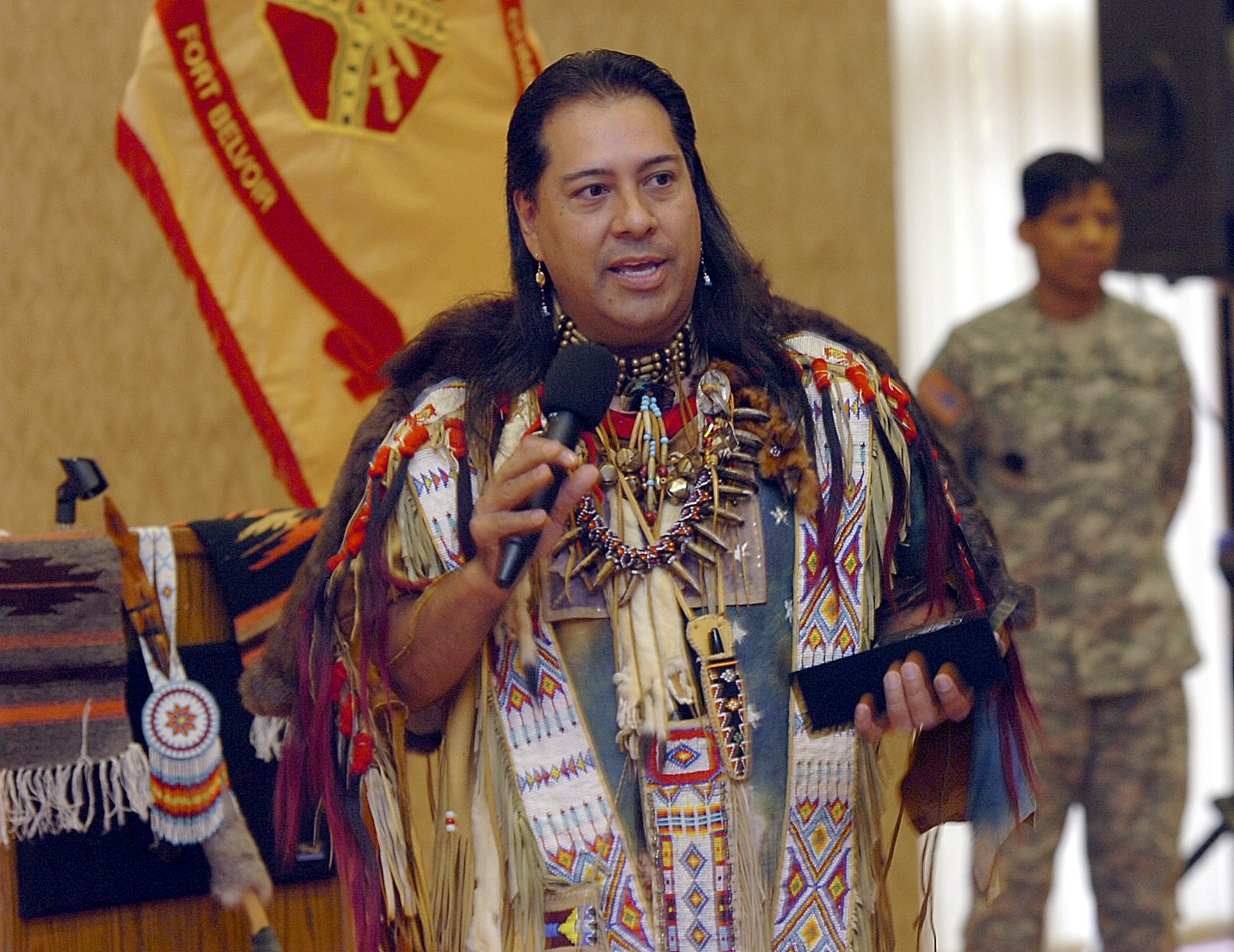FORT BELVOIR, Va. -- Growing up as a member of the Cherokee Indian Nation, Chief Red Iron Hawk was taught about life by his elders, according to his Native American culture.
"My grandfather always taught us that 'life is a banquet and most fools are starving to death' and it's sad to reach the point of death only to realize that at some point along the way we forgot to live life," Red Hawk said.
"Life is a beautiful thing to live, but sometimes we get caught up into our work, our families and our love lives, that we don't even know where we are at.
"So I advise you during this Thanksgiving and this whole month of celebration to adopt some of our philosophy to realize that life is a banquet and don't starve, there is plenty out there for everybody," Red Hawk said.
He conveyed this message to an audience at Fort Belvoir's Community Club Thursday during his presentation for the post's observance of American Indian Heritage Month.
Red Hawk is a retired clan chief for the American Cherokee Confederacy of Georgia, a state-recognized tribe, for which he still holds the honorary title of chief. He travels the world as a professional consultant and keynote speaker and has 20 years of experience in the public and private sectors.
He served as a member of the consulting pool at Georgetown University's National Center for Cultural Competence and is the founder of OPM Management Solutions LLC, which specializes in diversity training and keynote addresses on cultural understanding and cultural competency.
A 10-year Navy veteran, Red Hawk received the Navy Achievement Medal for his contributions in the field of management theory and commendations for serving in Desert Storm. He was also awarded the Humanitarian Service Medal for his services in the rescue of Korean refugees off the Sea of Japan.
In addition to his cultural programs, Red Hawk is also a successful recording artist and has received numerous musical award nominations for his portrayal of Native American music.
Red Hawk's presentation used humor and stories from his childhood to highlight cultural differences and educate attendees on Native American culture.
Red Hawk began his presentation by explaining the history and meaning of Native American names.
"Every Native American you're going to run into has a spiritual name we use when we do our sweat lodge ceremonies or our vision quest ceremonies," Red Hawk said. "Any ceremony that takes us out of the physical realm and puts us into the spiritual realm, we use what you would call Native American names.
"I am named after the red-tailed hawk, a Native American symbol for the eastern gate of life, where the sun comes up and sheds its light on the back of Mother Earth," Red Hawk said.
Next, Red Hawk explained cultural differences and diversity between different tribes of American Indians.
"When we talk about diversity, we are talking about our differences and similarities at the same time," Red Hawk said. "The Navajo and the Hopi for 400 years never got along. The Cherokee, Choctaw, Chickasaw and Creek Indians were bitter enemies with one another.
"Even though we are all natives, we speak different languages and we have a lot of cultural differences, but we are all Americans and we still eat the same foods," Red Hawk said.
He continued by teaching the crowd some of the Cherokee language, war cries and hand gestures. Red Hawk also included in his presentation some of the drums and flutes used in Cherokee culture during war chants and pow wows.
After Red Hawk's presentation, Installation Commander Col. Jerry Blixt and Installation Command Sgt. Maj. Gabriel Berhane took the podium to present him with a plaque thanking him for his presentation.
In addition to presenting him with a plaque, Blixt asked Chief Red Hawk to answer a few questions for some of the children who attended. Children were able to ask questions about Red Hawk's authentic Indian dress and who gave him his name.
"I had the pleasure of seeing Chief Red Hawk previously and I was very happy to see he would be in attendance today," Blixt said. "It is always very educational to hold events like this and our nation continues to learn about Indian culture and we are very appreciative of this presentation."
After the event, attendees were treated to samples of authentic Native American foods, including sassafras tea and spicy turkey.


Social Sharing